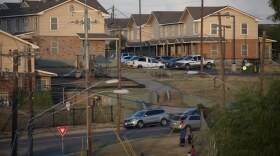A court has, once again, ruled the City of Austin ignored state law in its effort to overhaul zoning rules, and thereby the process at one time called CodeNEXT is dead.
A panel of three judges from the 14th Court of Appeals in Houston upheld a ruling by a Travis County judge in 2020. The earlier decision threw out votes Austin City Council members had taken on new land code rules that would apply across the city. The council was one vote away from finalizing the rules, which had been nearly a decade in the making.
“The Court of Appeals decision makes clear that whether the city proposed rezoning one property or many, property owners must be given notice and protest rights," Doug Becker, who represented the plaintiffs, told KUT.
The court ruled the City of Austin did not follow Texas law, which requires a governmental body to individually notify people who own property within a certain distance of land it wants to rezone. These property owners have the right to formally oppose — or protest — this change, which the governmental body must recognize.
The City of Austin argued in court that these requirements govern individual zoning changes, not changes that would apply to every property in the city. In response, 19 property owners sued.
“[Landowners] have felt that their voices weren’t heard because their protests were ignored,” Becker told KUT. “The courts have said your voice in the form of a protest must be heard and that your protest has consequences.”
These consequences will likely make passing a land code rewrite nearly impossible, at least with the current makeup of the City Council.
If owners representing at least 20% of nearby properties oppose new zoning, the change has to be approved by more City Council members than usual; in Austin's case, that’s nine of the 11 members. Historically, the council has not strongly supported proposed land code rewrites.
For nearly a decade, the city has been trying to revise its land code, which was last comprehensively rewritten in 1984. A land code dictates what can be built and where in the city.
As Austin residents stare down a historic rise in housing costs caused by a lack of housing, supporters of the rewrite argued the city had an opportunity to allow more housing to be built. Currently, the majority of land in Austin is zoned single-family, meaning builders are typically permitted to build only a single-family home or duplex.
"Whatever the final outcome in the courts, our city's most pressing challenge is still housing affordability and increasing housing supply," Austin Mayor Steve Adler said in a statement. "City Council needs to hear from the city attorneys about our options at this point."
In a statement Thursday, the City of Austin provided few details on whether it plans to appeal to the Texas Supreme Court: "We are reviewing the decision and will discuss with Council before deciding next steps,” a spokesperson wrote.








































